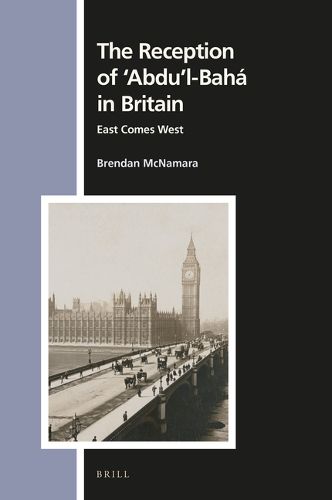Readings Newsletter
Become a Readings Member to make your shopping experience even easier.
Sign in or sign up for free!
You’re not far away from qualifying for FREE standard shipping within Australia
You’ve qualified for FREE standard shipping within Australia
The cart is loading…






In exploring ‘Abdu'l-Baha’s visits to Britain, Brendan McNamara expands the jigsaw of our knowledge of how the east came west . More importantly, by exploring the visits through the motives of those that received him, The Reception of 'Abdu'l-Baha in Britain: East Comes West demonstrates that the cultic milieu thesis is incomplete. Focusing on a number of well-known Edwardian Protestant reformers, the book demonstrates that the arrival of eastern forms of religions in Britain penetrated more mainstream Christian forms. This process is set within significant developments in the early formation of the study of religions, the rise of science and orientalism. All these elements are shown to be linked together. Significantly the work argues that the advent of World War One changed the direction of new forms of religion leading to a 'forgetfulness’ that has lasted until the present time.
$9.00 standard shipping within Australia
FREE standard shipping within Australia for orders over $100.00
Express & International shipping calculated at checkout
In exploring ‘Abdu'l-Baha’s visits to Britain, Brendan McNamara expands the jigsaw of our knowledge of how the east came west . More importantly, by exploring the visits through the motives of those that received him, The Reception of 'Abdu'l-Baha in Britain: East Comes West demonstrates that the cultic milieu thesis is incomplete. Focusing on a number of well-known Edwardian Protestant reformers, the book demonstrates that the arrival of eastern forms of religions in Britain penetrated more mainstream Christian forms. This process is set within significant developments in the early formation of the study of religions, the rise of science and orientalism. All these elements are shown to be linked together. Significantly the work argues that the advent of World War One changed the direction of new forms of religion leading to a 'forgetfulness’ that has lasted until the present time.